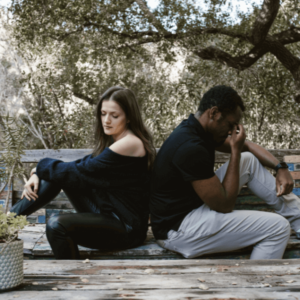Commitment-phobes are often labeled as elusive, emotionally unavailable, and resistant to the idea of settling down. But what happens when someone who fears commitment unexpectedly falls in love? It can feel both exhilarating and confusing, leaving you unsure of how to navigate the relationship. This article explores the dynamics at play when a commitment-phobe falls for you, offering insight into their mindset and practical advice on how to build a healthy connection.
1. Understanding Commitment-Phobia
Before diving into what happens when a commitment-phobe falls in love, it’s essential to understand what commitment-phobia really is. A commitment-phobe is someone who has a deep-rooted fear of emotional attachment and the responsibilities that come with a long-term relationship. This fear often stems from past experiences, childhood trauma, or even societal pressures that make commitment feel overwhelming.
Example:
John, a 35-year-old who has dated casually for years, finds himself panicking whenever a relationship gets too serious. He avoids discussing the future and pulls away when his partners ask for more commitment. This fear stems from watching his parents’ messy divorce when he was a child, leaving him wary of the pain that long-term relationships can bring.
Question for Reflection: Can you recognize signs of commitment-phobia in your partner or yourself?
2. The Paradox of Love and Fear
When a commitment-phobe falls in love, they are often caught between two conflicting emotions: the desire for love and connection, and the fear of vulnerability and commitment. This internal conflict can lead to confusing behaviors, such as hot-and-cold dynamics, mixed signals, and emotional withdrawal.
Example:
Rachel, who typically avoids serious relationships, meets someone who makes her heart race. She starts feeling emotions she hasn’t experienced in years, but as her feelings grow, so does her anxiety. She finds herself pushing him away one day and then pulling him closer the next. This paradox of wanting love but fearing it at the same time creates a rollercoaster of emotions.
Question for Reflection: Have you experienced moments where your partner seems to oscillate between affection and withdrawal?
3. Signs a Commitment-Phobe is Falling for You
While commitment-phobes may be hesitant to express their feelings openly, there are subtle signs that indicate they are falling for you. These signs can be easy to miss if you’re focused on their more distant behaviors, but they often reveal the internal struggle they face when love challenges their fears.
- Increased Vulnerability: They start opening up about personal topics they typically avoid, such as their fears, insecurities, or past experiences.
- Consistency: Despite their usual avoidance of serious relationships, they make an effort to show up consistently, whether it’s through regular communication, spending time together, or making future plans.
- Emotional Investment: They begin to care more about your well-being, showing concern and taking steps to support you emotionally.
Example:
David, a self-proclaimed commitment-phobe, surprises his partner by planning a weekend getaway—a significant step for someone who usually avoids making plans more than a week in advance. This gesture reflects his growing emotional investment, even though he may not say it outright.
Question for Reflection: Have you noticed subtle changes in your partner’s behavior that suggest they are becoming more emotionally invested?
4. The Challenges of Being with a Commitment-Phobe
Falling in love with a commitment-phobe comes with unique challenges. Their fear of attachment can create tension and uncertainty in the relationship, making it difficult to progress naturally. Here are some common challenges you may face:
- Hot and Cold Behavior: They may be affectionate and present one moment, then distant and unresponsive the next. This inconsistency can leave you feeling confused and emotionally drained.
- Reluctance to Define the Relationship: A commitment-phobe may avoid labels or discussions about the future, leading to ambiguity about where the relationship is headed.
- Emotional Guarding: Even if they are falling for you, they may struggle to express their feelings openly, keeping their emotional walls up to protect themselves.
Example:
Sophie has been dating Mark for six months, and while their connection is strong, he avoids defining their relationship. Whenever she brings up the topic, he deflects with humor or changes the subject. This reluctance to commit creates tension, as Sophie feels uncertain about where they stand.
Question for Reflection: Have you encountered moments of emotional withdrawal or avoidance in your relationship, and how have you responded to them?
5. How to Handle a Commitment-Phobe in Love
Navigating a relationship with a commitment-phobe requires patience, understanding, and clear communication. Here are some strategies to help you manage the relationship dynamics effectively:
- Give Them Space: Commitment-phobes need space to process their emotions. Pushing them too hard for answers or commitment can trigger their fears and lead to withdrawal. Instead, allow them the time to work through their feelings at their own pace.
- Encourage Open Communication: Create a safe environment where they feel comfortable sharing their thoughts and fears. Let them know that you’re willing to listen without judgment.
- Set Boundaries: While it’s important to be patient, you also need to protect your own emotional well-being. Set clear boundaries about what you’re willing to tolerate, and be honest about your needs in the relationship.
- Celebrate Small Steps: Recognize and celebrate the small steps they take towards emotional intimacy and commitment, even if they seem minor. These gestures often signify significant growth for someone who struggles with commitment.
Example:
Megan understands that her partner, Tom, needs time to feel comfortable with commitment. Instead of pressuring him, she focuses on building trust and celebrating small milestones, such as him introducing her to his close friends. These moments of progress reassure Megan that their relationship is moving in the right direction, even if it’s at a slower pace.
Question for Reflection: How can you balance giving your partner space while still advocating for your own needs in the relationship?
6. When to Walk Away
While love can be transformative, it’s important to recognize when a relationship with a commitment-phobe is no longer healthy for you. If your partner’s fear of commitment consistently leaves you feeling insecure, anxious, or unfulfilled, it may be time to evaluate whether the relationship is meeting your needs.
- No Progress: If the relationship remains stagnant for an extended period, with no signs of growth or deeper commitment, it may be a sign that your partner isn’t ready to overcome their fears.
- Emotional Drain: If you find yourself constantly walking on eggshells, trying to manage their fears while neglecting your own emotional needs, the relationship may be taking a toll on your mental health.
- Lack of Reciprocity: A healthy relationship requires effort and emotional investment from both partners. If you’re the only one making compromises or putting in the work, it may be time to reconsider the relationship.
Example:
Anna has been in a relationship with a commitment-phobe for two years. Despite her efforts to be patient and understanding, her partner remains emotionally distant and avoids any discussions about the future. Anna realizes that she deserves a partner who is willing to meet her halfway, and she makes the difficult decision to walk away.
Question for Reflection: Are you sacrificing your own happiness and well-being for a relationship that isn’t fulfilling your needs?
7. Hope for the Future: Can Commitment-Phobes Change?
The good news is that commitment-phobes can change, but it requires self-awareness, effort, and a willingness to confront their fears. While not every commitment-phobe will overcome their fears, many can work through them with the right support, time, and personal growth.
Example:
Jake was a commitment-phobe for most of his adult life, but after meeting someone who made him reconsider his fears, he sought therapy to address his issues. Over time, Jake learned to open up emotionally and build a healthy, committed relationship.
Tip for Change: Encourage your partner to seek professional help if their commitment issues are deeply rooted in past trauma or unresolved emotional pain. Therapy can be a powerful tool for growth and healing.
Being in a relationship with a commitment-phobe is not easy, but it doesn’t have to be a losing battle. Understanding their fears, practicing patience, and setting clear boundaries can help you navigate the challenges that come with loving someone who fears commitment. However, it’s equally important to prioritize your own well-being and recognize when the relationship is no longer healthy for you.
Remember, love can be transformative, but it requires effort and emotional investment from both partners. If you’re in a relationship with a commitment-phobe, take the time to evaluate whether you’re both willing to work through the challenges together. And if the answer is yes, you may find that love can conquer even the deepest fears.




